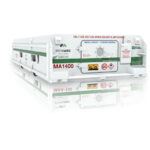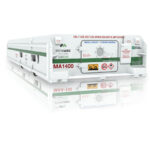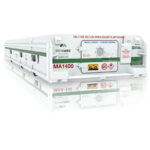MSHA Chamber for Low Seams
- CoalSAFE MSHA LS Design
The CoalSAFE MSHA Low Seam Refuge Chamber is designed for underground coal mines with a minimum seam height of 46” (1.2m). The refuge chamber can be custom designed to client specifications, but typically features 12, 16, 20 and 24 person configurations.
The CoalSAFE MSHA High Seam Refuge Chamber is approved in the United States by the West Virginia Office of Miners’ Health, Safety & Training and built to the Mine Safety & Health Administration (MSHA) Federal Regulations ’30 CFR Refuge Alternatives for Underground Coal Mines’.

The CoalSAFE MSHA Low Seam Refuge Chamber features an innovative, intrinsically safe life-support system that is unique to MineARC Systems; providing both powerless CO/CO2 scrubbing and airconditioning. Utilising a sequential operating procedure, the intrinsically safe system can be activated in less than 60 seconds during a coal mining emergency.
Due to the height restrictions of low seam operations, the CoalSAFE MSHA Low Seam Refuge Chamber features a secure, separately transportable External Cylinder Bay (ECB) to house the oxygen and liquid CO2 cylinders required to power the refuge’s internal life support systems.
- Intrinsically Safe Design
- Blast Rating: 15psi
- CO & CO2 Scrubbing
- Breathable Air (O2) Supply
- Fully Flushing, Internal Airlock
- Air Conditioning
- 96hrs Standalone Operation with Option to Upgrade
- Viewing Porthole
- Gas Monitoring
- In-built Cylinder Storage
- Cyalume Light Sticks
- Special Dimensions and Configurations
- Duration Upgrade
- Blast Rating Upgrade
- MSHA Approved Strobe
- Towbar
- 58cm (23″) Wheels
- Emergency Escape Hatch
- Reinforced Attachment Points
- Lifting Eye Shackles
MSHA Chamber for Low Seams – Front View
The ‘face’ of the CoalSAFE MSHA Low Seam Refuge Chamber is designed primarily for easy identification and quick access during a coal mining emergency. The reflective signage alerts passers-by to the refuge chamber’s location, whilst the interlocking rotating door handles provide simple, straight forward access to the safety of the interior airlock.
The CoalSAFE has been engineered to ensure ease of transport and robust design. Constructed from explosion resistant steel plate with external support wraps and surround package as standard, the refuge can withstand in excess of 15psi overpressure with no permanent damage. Push points, forklift slots and towing and lifting eyes are provided top and bottom on front and rear.
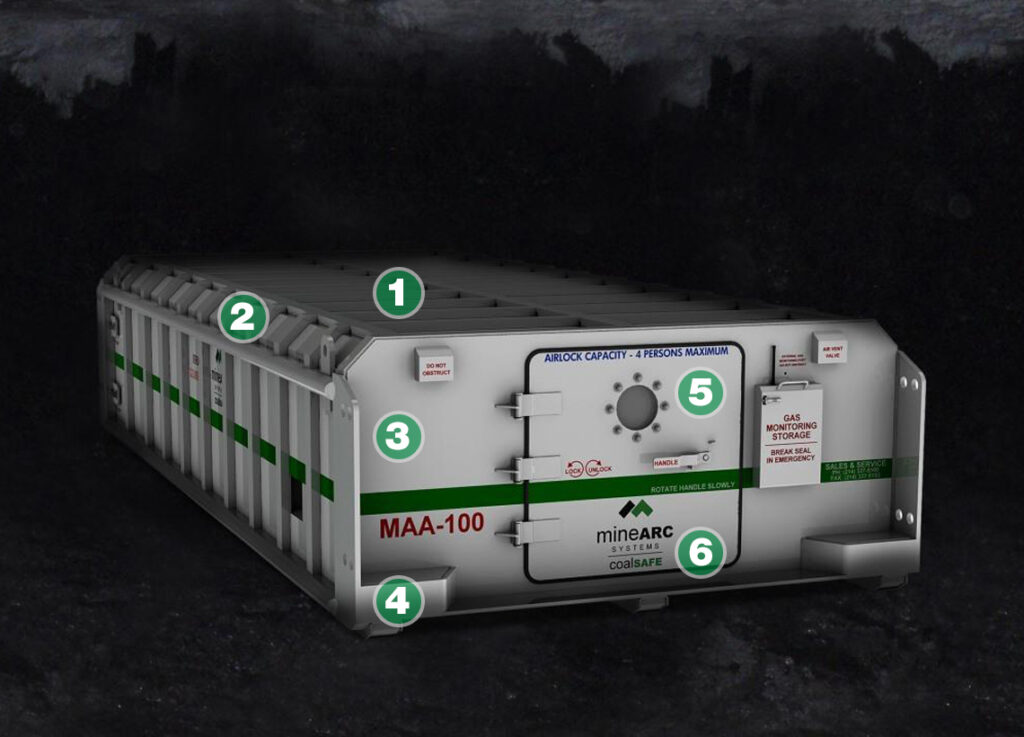
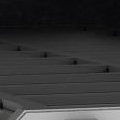 Explosion resistant steel plate with external support wraps and surround package, built to withstand in excess of 15psi (103kPa) overpressure.
Explosion resistant steel plate with external support wraps and surround package, built to withstand in excess of 15psi (103kPa) overpressure.
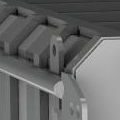 On roof of chamber.
On roof of chamber.
 Safety and operational signage in reflective stickering for high visibility underground. Translation into a second language available.
Safety and operational signage in reflective stickering for high visibility underground. Translation into a second language available.
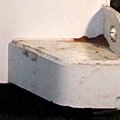 The skid base provides ease of mavoeuvrability, featuring 250 x 100mm forklift slots, front and rear mounted tow points and front mounted 25mm steel plate push blocks.
The skid base provides ease of mavoeuvrability, featuring 250 x 100mm forklift slots, front and rear mounted tow points and front mounted 25mm steel plate push blocks.
 High durability white paint for underground visibility. Sand blasted to 2.5 grit.
High durability white paint for underground visibility. Sand blasted to 2.5 grit.
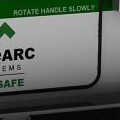 Outward opening door, featuring double locking rotating handles. The vacuum tested seal maintains a positive internal pressure.
Outward opening door, featuring double locking rotating handles. The vacuum tested seal maintains a positive internal pressure.
MSHA Chamber for Low Seams - Interior View
Inside the MineARC CoalSAFE MSHA Low Seam Refuge Chamber, a number of vital systems combine to create a safe, ongoing environment for occupants.
The MARCis intrinsically safe Carbon Dioxide (CO2) and Carbon Monoxide (CO) Scrubbing System does not require any electrical power to operate. The active chemical scrubbing system is designed to clean the air of these harmful gases and toxins that build up over time within a sealed, occupied environment. In addition, the MARCis incorporates a non-electrical air conditioning system that both cools and dehumidifies the refuge chamber.
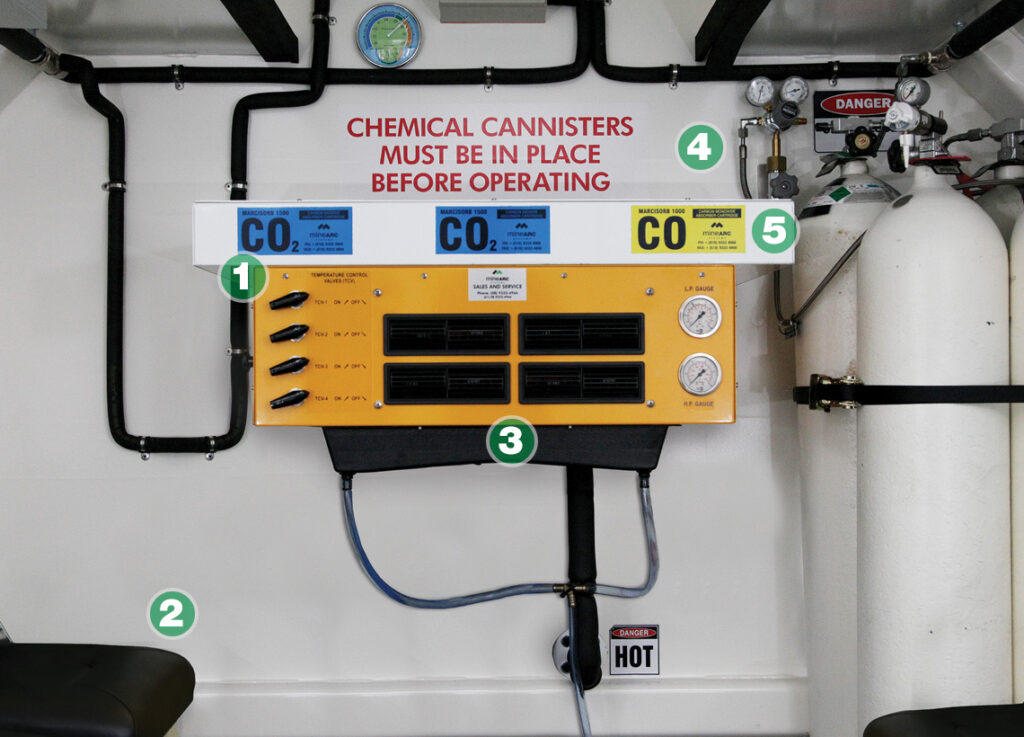
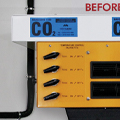 Utilising a sequential operating procedure, MARCis can be activated in less than 60 seconds during an emergency.
Utilising a sequential operating procedure, MARCis can be activated in less than 60 seconds during an emergency.
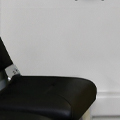 MineARC seating is ergonomically designed to provide suitable comfort during entrapment. Made from durable, hard wearing fabric, the seating provides 500mm of space per person.
MineARC seating is ergonomically designed to provide suitable comfort during entrapment. Made from durable, hard wearing fabric, the seating provides 500mm of space per person.
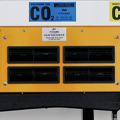 To maintain the internal atmosphere of the CoalSAFE, the MARCis incorporates a nonelectrical air conditioning system that both cools and dehumidifies the refuge.
To maintain the internal atmosphere of the CoalSAFE, the MARCis incorporates a nonelectrical air conditioning system that both cools and dehumidifies the refuge.
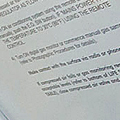 Operating procedures are located on the wall of the refuge chamber, as well as within hardcopy manuals. Operating procedures can be translated into a second language.
Operating procedures are located on the wall of the refuge chamber, as well as within hardcopy manuals. Operating procedures can be translated into a second language.
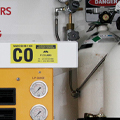 The MARCis (Intrinsically Safe) scrubbing system does not require electrical power to operate. The system scrubs the air of CO and CO2 build up.
The MARCis (Intrinsically Safe) scrubbing system does not require electrical power to operate. The system scrubs the air of CO and CO2 build up.
Comparison Table
- * Capacity Every safe haven is built with a certain rated occupancy in mind. The life support systems are designed to safely house this number of people for the designated duration..
- ** Intrinsically Safe System CoalSAFE Refuge Chambers do not require any electrical power to operate..
- *** MSHA Compliant Certain CoalSAFE models are approved in the United States by the West Virginia Office of Miners' Health, Safety and Training and are built to the Mine Safety and Health Administration (MSHA) federal regulations '30 CFR Refuge Alternatives for Underground Coal Mines'.
Related Products

Handheld Gas Detection – Aura-PT
Handheld Gas Detection Handheld gas detection with MineARC’s Aura-PT has been designed to provide underground personnel with the ability to continuously monitor up to six gases within their immediate surroundings. When used in conjunction with the GuardIAN Intelligence Network, Aura-PT automatically communicates dangerous gas levels back to the GuardIAN Server via adjacent GuardIAN Nodes. The

Compressed Air Management System (CAMS)
Compressed Air Management System (CAMS) The Compressed Air Management System (CAMS) is a breathable air system that is unique to the market; offering a range of features aimed at reducing running costs and improving operational safety during an emergency. Aside from providing clean breathable air through a superior four-phase filtration process, some of the major
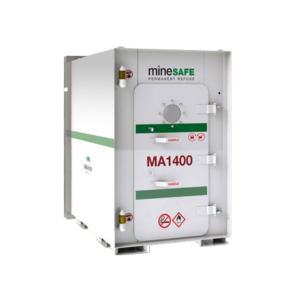
Airlocks and Vestibules
Airlocks and Vestibules Airlocks and Vestibules by MineARC are designed to act as a secure staging area between the safety of the refuge shelter and the outside environment; significantly reducing the threat of contaminants being brought into the refuge chamber on entry during an underground mine emergency. MineARC offers a range of internal and external





